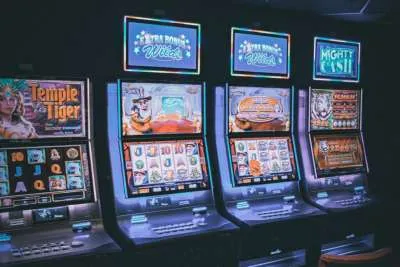Evolution of Entertainment: A Journey Through Time
- 13-12-2023
- Business
- Canarian Weekly
Entertainment, a vibrant and ever-changing domain, has significantly evolved over the decades. This article delves into the fascinating journey of entertainment, tracing its transformation from early theatre to the digital age, emphasising how technological advancements and societal shifts have revolutionised the way we consume entertainment.
The Golden Age of Television: A Retrospective
In the mid-20th century, television emerged as a dominant form of entertainment. This era, known as the Golden Age of Television, witnessed a surge in TV ownership and a variety of content ranging from sitcoms to drama series. This period marked the beginning of a new era in entertainment, setting the stage for future innovations.
Cinema: The Artistic and Technological Revolution
Cinema, a cornerstone of entertainment, has undergone significant changes, especially in its technology and storytelling. From the classic stop-motion techniques of the early 20th century to the cutting-edge CGI of modern times, films have continually embraced new technologies to enhance storytelling. These advancements have not only changed the visual experience but also expanded the creative possibilities for filmmakers.
The Rise of Animation: A New Era of Storytelling
Animation has gained immense respect and popularity in recent decades. Once viewed as primarily a children's medium, it has evolved to explore complex themes and storytelling techniques. Acclaimed animated movies and TV shows have demonstrated the medium's ability to convey profound messages and captivate a diverse audience.
The Shift to Niche TV Programming and Streaming Services
In recent years, the landscape of television programming has undergone a significant transformation, driven largely by the advent of streaming services. This shift marks a departure from traditional network television, where the goal was to create shows with mass appeal to attract large audiences and, by extension, advertisers. Streaming services, with their subscription-based model, have changed this dynamic, focusing instead on a diverse range of content to cater to various interests and demographics.
This era of streaming has been characterised by a proliferation of niche content. Shows that might have struggled to find a home on network television due to their specific themes or limited target audience have flourished in the streaming world. This includes content that caters to specific interests, subcultures, or addresses more complex and nuanced subject matter that might not have broad appeal but resonates deeply with particular audiences.
One significant aspect of this shift is the representation and inclusion of diverse narratives. For example, LGBTQ+ stories, which were once marginalised in mainstream media, have found a more welcoming platform on streaming services. Shows like "Orange Is the New Black," "Pose," and others have not only been critically acclaimed but have also garnered substantial viewer bases. This inclusivity extends to other underrepresented groups as well, offering a more holistic representation of society.
Furthermore, the streaming era has given rise to a new form of storytelling, where creators are less constrained by the traditional formats and runtime of network television. Without the need to fit into a specific time slot or appeal to a broad audience, shows on streaming platforms can vary significantly in length, structure, and storytelling approach. This freedom has led to more creative and innovative content, pushing the boundaries of what television can be.
Another consequence of this shift is the blurring of genre lines. Streaming services have embraced a mix of genres, creating hybrid forms that combine elements of drama, comedy, documentary, and more. This experimentation has led to unique and compelling content that challenges traditional genre conventions.
Moreover, the global reach of streaming platforms has introduced audiences to international content, making shows from different countries and in various languages more accessible. This not only broadens the viewer's horizon but also contributes to a more interconnected and culturally diverse media landscape.
The Transformation of the Film Industry: Blockbusters and Beyond
While TV embraced diversity, the film industry saw a shift towards blockbuster productions. The focus on large-scale, high-budget movies has overshadowed smaller, independent projects. This trend reflects a "bigger is better" ideology, with an increasing number of films achieving billion-dollar box office successes.
Social Media and Online Gaming: The New Frontiers
Social media platforms, such as Facebook, Instagram, and TikTok, have transcended their original purpose of connecting people to become integral parts of the global entertainment landscape. These platforms have revolutionised how entertainment is consumed, created, and shared. They are not just mediums for passive consumption; rather, they empower users to be creators and active participants in shaping entertainment trends.
The impact of social media on entertainment is multifaceted:
Content Creation and Virality: Users can create and share their content, reaching global audiences rapidly. Viral trends, memes, and challenges on these platforms often become cultural phenomena.
Influencer Culture: Social media has given rise to influencers, individuals who have the power to affect the purchasing decisions of others because of their authority, knowledge, position, or relationship with their audience.
Real-Time Engagement: These platforms facilitate real-time interaction and engagement, allowing for live streaming, instant feedback, and interactive discussions, creating a more dynamic and immersive entertainment experience.
Personalisation and Discovery: Algorithms on social media platforms personalise the user experience, recommending content based on individual preferences, thereby aiding in the discovery of new entertainment forms and artists.
Online Gaming: The Evolution of Interactive Entertainment
Online gaming represents another significant shift in entertainment, moving beyond traditional gaming consoles to more accessible, diverse platforms. The evolution of online gaming is characterised by several key developments:
Accessibility and Convenience: With the advent of cloud gaming and mobile gaming, access to games has become more convenient and widespread, allowing players to engage in gaming activities from anywhere, anytime.
Social Interaction: Online games often include social components, such as multiplayer modes and in-game communication, fostering a sense of community and social interaction among players.
Diverse Gaming Options: The online gaming world offers a vast array of options, from complex strategy games to casual mobile games, catering to a wide range of interests and skill levels.
Online Casinos and Betting: The growth of online casinos has been significant, providing users with virtual gambling experiences that mimic real-life casinos. These platforms offer a range of games, including slots, poker, and sports betting, and have become popular options on the UK online casino market.
eSports: The rise of eSports has transformed online gaming into a spectator sport, with professional gamers competing in tournaments that attract massive audiences both online and offline.
Mobile Platforms: The Gateway to Diverse Entertainment
The proliferation of mobile platforms has made entertainment more accessible than ever. Smartphones and mobile devices have become hubs for various activities, from gaming to streaming movies and TV shows. This convenience has significantly changed how we interact with and consume entertainment.

The Future of Entertainment: Virtual Reality and Beyond
As we look to the future, emerging technologies like virtual reality hint at new possibilities for immersive experiences. The entertainment industry continues to innovate, suggesting that future advancements will further transform how we engage with entertainment, shaping our experiences in unprecedented ways.
Conclusion: The Ever-Evolving Landscape of Entertainment
From traditional theatre to the digital revolution, entertainment has continually adapted to technological advancements and changing consumer preferences. As we advance, it remains a vital part of our lives, offering endless possibilities for enjoyment, connection, and creativity. The future of entertainment, undoubtedly, holds exciting and uncharted territories, promising to continue this fascinating journey of evolution.
Other articles that may interest you...
Trending
Most Read Articles
Featured Videos
A Vision of Elvis Tenerife Promo
- 10-05-2025
TEAs 2025 Highlights
- 17-11-2025


























































